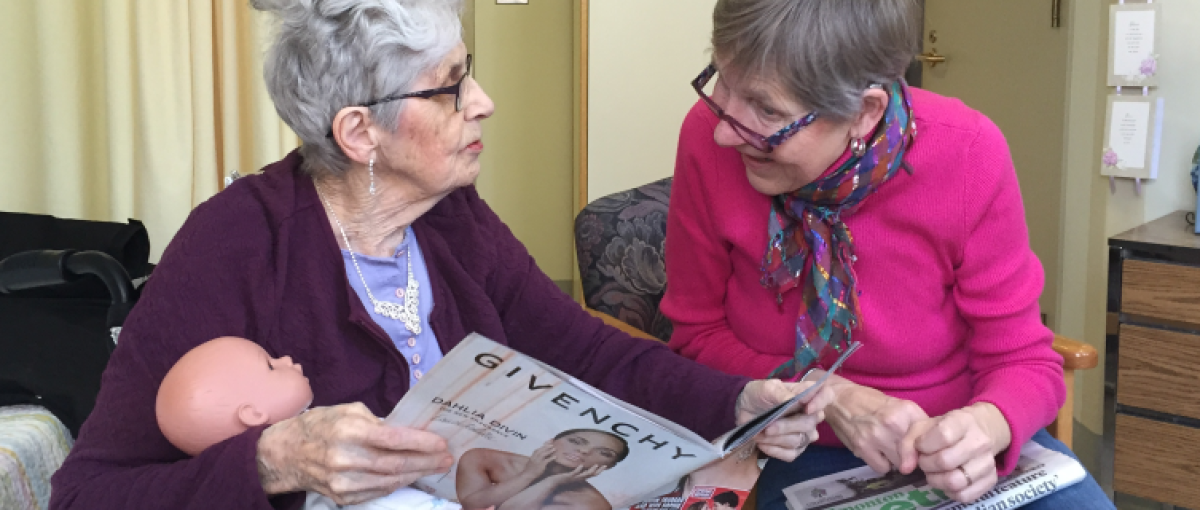Reducing antipsychotics to manage Alzheimer's
Alternative treatment approach has success

July 25, 2016
By Katrina Lingrell, Senior Advisor, Digital Communications, Covenant Health
Gerry Harvey and her daughter Laura Krefting laugh as they reminisce about old times as they sit near a sunlit window in the long-term care unit at the Edmonton General Continuing Care Centre.
Diagnosed with Alzheimer’s disease nine years ago, Gerry has a tender heart and gentle spirit that has touched many families, including her own. She graduated from the University of Alberta’s nursing program in 1949 and raised her three children while volunteering extensively in the community.
“She was very involved in the church and the Women’s Auxiliary and even visited people at the Edmonton General,” says Laura. “She took care of people.”
Laura remembers Gerry’s move to the Edmonton General as extremely stressful for the family. Gerry was not her calm, smiling self during those first few days. She was unco-operative and resisted staff and family trying to care for her.
“It was her first move in 59 years, and it was really distressing for Mom,” says Laura. “She was on antipsychotics to help manage her dementia, but they made her a completely different person. She was non-verbal and barely recognized anybody.”
Luckily for Gerry and her family, the medications were quickly replaced with what originally seemed a strange alternative—a baby doll.
“She’s never without the baby,” Laura says. “Her vocabulary has doubled since she went off the antipsychotics and started caring for the baby, and the stimulation helps her personality come out.”
The principle of reducing the use of antipsychotics to manage dementia-related behaviour such as wandering and yelling comes from the Appropriate Use of Antipsychotics (AUA) program. Instead of using drugs to treat dementia in residents who don’t have psychosis, the program challenges care teams to investigate other treatment methods. And residents have benefited from the cultural shift in the use of antipsychotic medication, says Scott Baerg, Senior Operating Officer, Addiction & Mental Health and Continuing Care.
“There has been a remarkable 25 per cent decrease in the number of residents on antipsychotics compared to the same period last year. This means residents are enjoying a greater quality of life and are more engaged with their loved ones, participating in meaningful activities.”
Looking for alternatives to antipsychotics was exactly what Geraldine MacInnis, Manager, units 4A/B at the Edmonton General, did for her residents.
“Antipsychotics can keep residents from eating, communicating and socializing, and they can increase their risk of having a fall,” says Geraldine. “We need to investigate the resident’s past and see if they have a need we can meet without giving them medication.”

At the Edmonton General, an activity chest is proving to make a difference. It contains a variety of activities including puzzles, games, colouring books, dolls and stuffed animals. These items may seem trivial, but Geraldine says they put residents’ minds at ease by keeping them busy and engaged.
“We work with our residents instead of masking the problem,” she notes.
For Laura and Gerry, this work is priceless. Laura visits her mom often, and she’s glad to know that Gerry is back to her smiling self.
“My mom became alive after the drugs were stopped,” says Laura. “Despite her dementia, she is now alert, very social and a joy to visit with.”